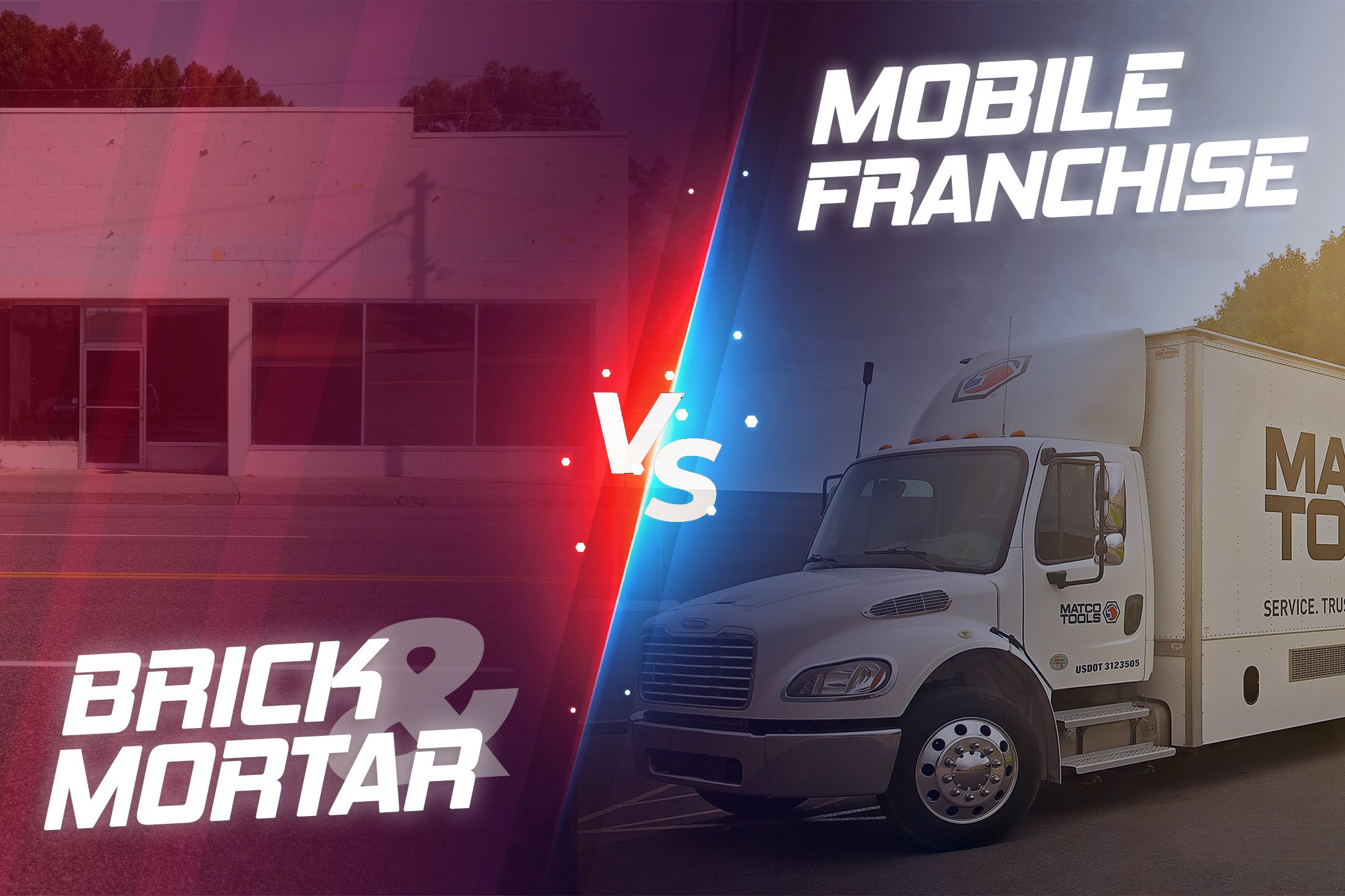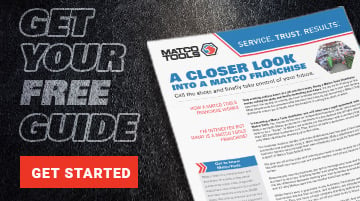
When it comes to franchising, the debate between mobile and brick-and-mortar options is as classic as the rivalry between McDonald's and food trucks.
On one hand, you have the iconic golden arches, a symbol of stability and familiarity, where customers know exactly what to expect. On the other, there’s the allure of mobile franchises that bring the goods right to your doorstep—no long lines or hunting for parking required.
Whether you’re dreaming of running your own Matco Tools mobile franchise or considering a traditional storefront, we break down the pros and cons of each model below.
Understanding the Mobile Franchise Model
In recent years, mobile franchises have emerged as a flexible alternative to traditional brick and mortar businesses. Unlike conventional franchises that require a physical storefront, mobile franchises operate from vehicles or mobile units, allowing entrepreneurs to bring their products and services directly to customers in various locations. This innovative approach to business leverages the growing demand for convenience and accessibility, making it an attractive option for both franchisees and consumers.
Matco Tools exemplifies the mobile franchise model by providing high-quality automotive tools and equipment directly to customers through its mobile units. As a mobile franchise, Matco Tools enables franchisees to operate a fully equipped tool truck that serves as a mobile store, allowing them to demonstrate and sell products on-site.
Mobile Franchise Pros and Cons
The mobile franchise model represents a significant shift in the franchising landscape, offering unique advantages that cater to the modern consumer's desire for convenience and accessibility.
Mobile Franchise Pros
- Flexibility: Operate in various locations based on customer demand.
- Lower Startup Costs: Reduced initial investment with no permanent location.
- Customer Interaction: Build strong relationships by engaging directly with clients.
- Diverse Revenue Streams: Serve multiple markets to minimize risk.
- Brand Visibility: A branded mobile unit acts as a moving advertisement.
Mobile Franchise Cons
- Operational Challenges: Logistical complexities like route planning and vehicle maintenance.
- Limited Hours: Potential restrictions on operating hours based on location.
- Weather Dependency: Sales can be affected by adverse weather conditions.
- Learning Curve: New franchisees may face challenges in managing a mobile business.
- Market Saturation: Increased competition may require differentiation.
Understanding the Brick-and-Mortar Franchise Model
Brick-and-mortar franchises represent the traditional model of franchising, where businesses operate from a physical location. This model includes a wide range of industries, from retail and food services to health and wellness.
Examples of well-known brick-and-mortar franchises include McDonald's, which has thousands of locations worldwide serving fast food; Subway, famous for its customizable sandwiches; and 7-Eleven, a convenience store staple offering a variety of products for on-the-go customers.
Brick-and-Mortar Franchise Pros
- Foot Traffic: High-traffic locations attract a steady flow of customers.
- Brand Recognition: Physical stores enhance visibility and build consumer trust.
- Consistent Hours: Fixed operating hours provide reliability for customers.
- In-Store Experience: Customers can interact with products, boosting satisfaction.
- Revenue Opportunities: In-store promotions and events can drive sales.
Brick-and-Mortar Franchise Cons
- High Overhead: Rent and utilities can significantly impact profits.
- Limited Flexibility: Physical locations make adapting to market changes challenging.
- Market Saturation: Intense competition may require unique strategies to stand out.
- Local Dependence: Sales can fluctuate based on local economic conditions.
- Operational Constraints: Managing staffing and inventory can be complex.
Making the Right Choice: Mobile VS Brick-and-Mortar
Choosing between a mobile franchise and a brick-and-mortar franchise is a significant decision that depends on various factors, including personal preferences, financial goals, and lifestyle.
Ultimately, the choice between a mobile franchise and a brick-and-mortar franchise should align with your personal and professional goals. While brick-and-mortar franchises offer stability and visibility, mobile franchises like Matco Tools provide an innovative and dynamic approach to business that caters to the modern consumer's needs.
Get Started with Matco Tools
Does a mobile franchise sound like it’s right for you? Our comprehensive franchise guide will help you solidify your decision. Click here to download now to unlock valuable insights and tips that will get you started down the path to franchise ownership with Matco.
This blog is not an offer to sell a Matco Tools franchise, as any offer can only be made by the delivery of Matco’s current Franchise Disclosure Document. In addition, Matco does not guarantee or warrant that any franchisee or distributor will be successful or will achieve the same operating results as the existing Matco distributors whose businesses are reflected in the studies noted above.





